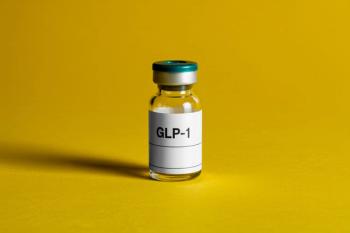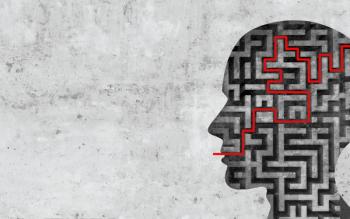
Psychosomatic Medicine: An Idea Whose Time Has Come
Medical-psychiatric comorbidity predicts poorer outcomes and increased health care utilization and cost. The collection of articles in this Special Edition is clinically informative and an illustrative set of examples of the unique practice of psychosomatic medicine in different medical-surgical settings.
Psychiatric Times
April Bonus Edition 2005
Vol. XXII
Issue 5
Psychiatric disorders as they occur in medical-surgical settings and among patients with different types of medical disorders have profound impacts on clinical outcomes and health care utilization. Medical-psychiatric comorbidity predicts poorer outcomes and increased health care utilization and cost. For example, self-reported depressive symptoms or substance abuse are estimated to increase annual health care costs by over $1,700 (Psychiatr Serv 1999; 50(2):214-218). Psychiatric consultation in general hospital patients and medical-surgical outpatients reduces mortality, morbidity, length of stay and hospital costs (The American Psychiatric Publishing Textbook of Consultation-Liaison Psychiatry, 2nd ed., 2002; American Psychiatric Publishing, pp25-32).
Changes in the U.S. health care system over the past 15 years have had tremendous effects on the delivery of medical and psychiatric care. The sites of care continue to shift away from inpatient settings to outpatient settings--and away from specialty settings to primary care settings. These phenomena have, of necessity, shifted much of the focus of psychosomatic medicine to the outpatient and primary care settings.
Different psychiatric conditions as they present in medical-surgical settings and patients are the focus of this bonus issue of Psychiatric Times. We hope you will find this collection of articles clinically informative and an illustrative set of examples of the unique practice of psychosomatic medicine in different medical-surgical settings. A number of experts have been asked to contribute to this special issue and have produced an important set of articles.
The relationship between diabetes and mental health is a topical issue. With "Sweet Sorrow: The Relationship between Depression and Diabetes Mellitus," William T. Regenold, M.D.C.M., and Christopher M. Marano, M.D., provide an elegant analysis of the complex interrelationship between depression and diabetes, including a particularly important discussion of unique factors informing the use of antidepressants in patients with depression.
Andrew J. Roth, M.D., provides an important clinical perspective on issues that arise in the lives of patients with prostate cancer in "Improving Quality of Life: Psychiatric Aspects of Prostate Cancer." These issues include sexual dysfunction, urinary incontinence, bowel changes, fatigue, pain, hot flashes, body image changes, antidepressant use and forced lifestyle changes.
"Depression as Co-Pilot: Clinical Implications of Hepatitis C and Interferon/Ribavirin Treatment" is an important examination of the sensitive clinical issues related to the relatively new phenomenon of hepatitis C by James A. Bourgeois, M.D., O.D. A particular issue of consideration in treatment is psychopharmacology in this population with hepatic dysfunction concerns.
To compliment these clinical selections, this edition also features an educational article on the psychiatric aspects of HIV, "Molecules of the Mind" and "Washington Report" columns, a book review and other clinical news articles. (Some of these articles can only be found in the print edition--Ed)
This bonus issue of Psychiatric Times is especially relevant in a time where the new psychiatric subspecialty of psychosomatic medicine is coming into its own and in a year when the theme of the Annual Meeting of the American Psychiatric Association focuses on this developing field. I hope you enjoy and learn as much from these articles as much as I have.
Acknowledgement
It is with great appreciation that Psychiatric Times acknowledges Dr. Rundell for his assistance in planning and reviewing this special report.
Dr. Rundell is professor of psychiatry at the Uniformed Services University of the Health Sciences and has served 23 years as a physician in the U.S. Air Force. He has co-authored or edited eight textbooks in psychosomatic medicine and has over 250 scientific presentations related to the interface between medicine and psychiatry.
Psychiatric Times also acknowledges the generous assistance of Neil B. Sandson, M.D., and Maria L. Tiamson, M.D., for their guidance with the Comorbidities Special Edition. Dr. Sandson is director of education and residency training for the Sheppard-Pratt Health Care System and is clinical assistant professor in the department of psychiatry at the University of Maryland. He is the author of Drug Interactions Casebook: The Cytochrome P450 System and Beyond (American Psychiatric Press, Inc.). Dr. Tiamson practices at the VA Hudson Valley Health Care System and is the author of Consultation-Liaison Psychiatry: A Practical Guide (Lippincott, Williams & Wilkins).
Newsletter
Receive trusted psychiatric news, expert analysis, and clinical insights — subscribe today to support your practice and your patients.







